Eating disorders are a serious mental health concern that can have devastating consequences on the individuals affected and their families. Group activities provide an opportunity for those suffering from eating disorders to interact with others in similar situations, receive support, and engage in meaningful conversations about living healthier lives.
This article will discuss some ideas for group activities aimed at educating people about eating disorders and encouraging healthy behaviors.
The first step towards recovery is recognizing there is help available. It’s important for those struggling with an eating disorder to know they are not alone–that many other individuals face similar challenges. Through engaging in group activities, these individuals can learn new coping strategies while developing positive relationships within the community of peers who share their struggles.
Group activities allow participants to explore various topics related to nutrition, body image, self-esteem, and more.
The goal is to create a safe space where everyone feels comfortable talking openly about their experiences without judgment or criticism from others. By discussing common issues surrounding eating disorders in this way, we hope to empower our clients to take control of their own well-being and live happier healthier lives.
Learn More: Group Activities Ideas For Emotional Intelligence Development.
10 Group Activities Ideas For Eating Disorder Patients

| Activity | Preparation | Fun Level |
|---|---|---|
| Cooking Class | Provide ingredients, cooking equipment, and a chef. | High |
| Mindful Eating Exercise | Provide mindfulness resources and a guided exercise. | Medium to High |
| Art Therapy | Provide art supplies and hire an art therapist. | High |
| Music Therapy | Hire a music therapist or provide musical instruments. | High |
| Group Therapy Session | Hire a licensed therapist or mental health professional. | High |
| Yoga or Meditation Class | Hire a yoga or meditation instructor. | High |
| Outdoor Walk or Hike | Plan out a location and provide safety resources. | Medium to High |
| Journaling Exercise | Provide writing prompts and journaling resources. | Medium to High |
| Body Positive Workshop | Hire a body positivity advocate or provide resources for discussion. | High |
| Nutritional Education Class | Hire a nutritionist or dietitian or provide resources for education. | High |
These group activities can be great ways to support eating disorder patients and improve their well-being, skills, and sense of community. Proper preparation and planning are necessary to ensure that everyone is safe and able to fully participate in the activities.
The fun level may vary depending on the preferences and needs of the participants. It’s important to remember that eating disorder patients may have different triggers and sensitivities, so it’s crucial to approach the activities with sensitivity and care.
Benefits Of Group Activities
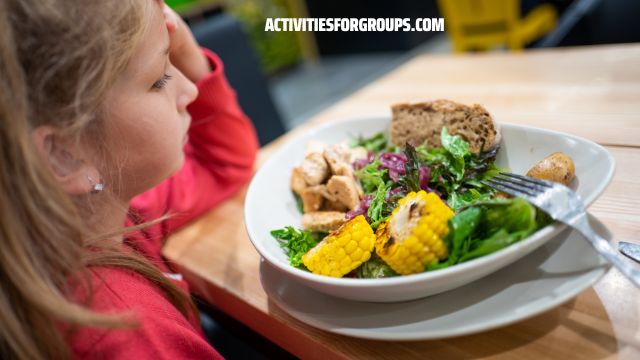
Now that we have addressed the various types of eating disorders, let’s discuss some potential benefits associated with group activities. In a supportive atmosphere, individuals can share their struggles and experiences related to living with an eating disorder. This type of open dialogue promotes growth and healing for both individuals and the entire group.
Group therapy activities offer participants a safe space to explore their emotions without fear of judgment or criticism from others. Group members are encouraged to practice self-acceptance as well as acceptance of other members’ stories. Mental health activities such as art therapy, yoga, meditation, journaling, or mindfulness exercises can help people find relief from the stressors they experience in daily life.
Through these activities, they gain insight into how their thoughts and feelings contribute to their behaviors around food and body image.
In addition, group therapy sessions provide unique opportunities for members to develop skills necessary for a successful recovery from an eating disorder. Members learn coping strategies that enable them to manage difficult situations; create healthy relationships; make positive lifestyle changes; set achievable goals; and foster meaningful connections through shared experiences with peers who understand what it is like to live with an eating disorder.
All of these elements play a key role in promoting lasting recovery from an eating disorder.
These benefits demonstrate why engaging in eating disorder support groups can be so beneficial for those struggling with this condition.
As individuals begin their journey toward recovery through meaningful connection with others, creative activity ideas become even more important tools on this path toward hope and healing.
Creative Activity Ideas

Group activities can be highly effective in treating eating disorders, as they provide an opportunity for social support and meaningful engagement. One of the best ways to engage clients is through creative activity ideas that allow them to express themselves while having fun. Such activities may include:
- Art therapy – this involves creating visual artworks or crafts with a focus on exploring feelings and emotions associated with their disorder.
- Writing therapy – this type of therapy encourages participants to write down their thoughts, experiences, and insights related to their struggles with food and body image issues.
- Music therapy – listening to music and engaging in songwriting exercises can help individuals identify difficult emotions and process them in a safe environment.
- Role Play – Role-playing scenarios associated with disordered behaviors provide an avenue for understanding how one’s actions affect others around them.
Mindfulness techniques are also beneficial when working with clients who have eating disorders, as it helps promote self-acceptance, awareness of triggers, and better management of negative thought patterns. Examples of mindfulness activities include guided relaxation meditation, mindful movements such as yoga or Tai Chi, and journaling about positive affirmations.
These activities can provide valuable insight into the client’s experience, allowing them to gain greater clarity on their needs and goals for recovery. With these considerations in mind, the next step will be planning appropriate group activities that meet those individualized needs.
Planning Considerations
When planning activities for individuals with eating disorders, it is important to consider the individual’s needs and preferences. Through careful consideration, clinicians can create an environment that is safe, supportive, and conducive to recovery. To ensure success, a few key considerations should be taken into account.
| Considerations | Details |
|---|---|
| Meal Planning | Provide dietary guidance from qualified personnel such as dieticians or nutritionists when possible |
| Mental Health Professionals | Secure referrals to mental health professionals who specialize in treating eating disorders if available |
| Self-Care Skills | Encourage self-care skills related to healthy eating habits such as mindful eating practices and balanced meal preparation |
It is critical to keep in mind the physical and psychological well-being of those participating in group activities for individuals with eating disorders.
In addition to providing support and resources within the group setting, facilitators should also look out for any signs of emotional distress or physical illness which may require additional intervention on their part. By taking these factors into account before beginning a program, facilitators can better equip participants with the necessary tools for successful recovery.
With this information in hand, they are then able to effectively craft guidelines for facilitating sessions that meet both the physical and emotional needs of those involved.
Guidelines For Facilitators
As the facilitator of a group activity for those coping with an eating disorder, there are certain strategies and techniques that you can use to ensure a successful experience. Here are some tips to keep in mind while preparing to lead your group:
First, be sure to understand the roles, expectations, and guidelines associated with being a facilitator. This includes having knowledge about the various types of eating disorders and how they affect people’s lives.
Additionally, it is important to create an open environment where everyone feels safe discussing their experiences without judgment or criticism. Asking questions during discussions helps engage each individual in meaningful dialogue, allowing them the opportunity to share their thoughts and feelings openly.
Second, when planning activities for your group make sure to include both interactive and reflective components. Involving participants in physical activities like yoga or mindful walking can help promote self-awareness and relaxation; while introducing creative projects such as drawing or journaling allows members time to express themselves through artful means.
Furthermore, developing fun games that focus on team-building skills encourages collaboration among peers which may build trust within the group setting.
Finally, providing feedback throughout each session will help encourage healthy discussion among individuals who have been affected by an eating disorder. Utilizing active listening skills when speaking with participants can foster positive communication between all involved parties; while giving constructive advice assists members in understanding effective ways of managing their illness that promote recovery over time.
Involving Family And Friends
It is important for family and friends to be involved in the recovery process of individuals with eating disorders. Family involvement can provide valuable support, understanding, and encouragement that are essential components of healing. Friends may also offer a sense of community and connection which can help an individual feel less isolated or ashamed.
Group activities that involve family and friends can be beneficial in providing additional sources of emotional support. This could include participating together in an eating disorder support group, attending educational seminars on healthy nutrition habits, or even sharing meals together.
Having family members present at these events will send a powerful message to the person affected by the eating disorder that they have their loved ones’ support throughout their journey toward wellness.
Family members should also take time outside of such activities to discuss openly their feelings related to the eating disorder as well as any changes or improvements being witnessed over time.
It is equally important for families to continue having regular conversations around topics unrelated to the disorder so everyone feels included and connected regardless of its presence.
Open communication among family members and inviting others within one’s social circles into the conversation provide invaluable opportunities for growth, learning, and acceptance from all sides.
Resources For Further Support
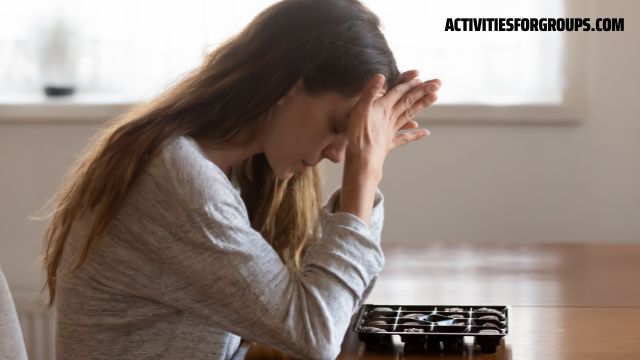
It is important to recognize that although family and friends may be able to provide significant support, professional help should also be sought in order to manage an eating disorder.
Statistics show that approximately 10 million men and 20 million women suffer from a clinically diagnosable eating disorder at some point during their lifetime. For those struggling with an eating disorder, finding the right resources for further support can make all the difference:
- Eating-disorder-support groups are often available locally or online where members come together as a community of individuals who share similar experiences and goals related to recovery.
- Treatment options such as therapy, medication management, and nutrition counseling may need to be part of the treatment plan depending on each person’s unique situation.
- Nutrition therapy provided by registered dietitians allows patients to learn more about healthy eating habits while exploring issues around body image.
- Mental health care professionals like psychologists and psychiatrists specialize in supporting people with psychological disorders including eating disorders and can recommend individualized evidence-based treatments such as Cognitive Behavioral Therapy (CBT).
Finding help with an eating disorder requires making difficult decisions but it’s important to remember that you don’t have to go through this alone – there are many resources out there dedicated specifically to providing assistance and guidance throughout this journey.
It is possible to find ways of managing your symptoms and start feeling better again; talking openly about your needs with someone trustworthy might just be the first step.
Frequently Asked Questions [FAQs]
At this stage of the article, let’s see some FAQs, that people frequently ask about Engaging Group Activities Ideas to Support Eating Disorder Recovery.
What Types Of Activities Can Be Done In Groups For Eating Disorders?
When dealing with eating disorders, it is important to provide individuals affected with the support and resources they need. One way this can be done is through group activities in a safe, supportive environment. These activities may include nutrition counseling, mindful eating sessions, recreational activities, and peer support.
Nutrition counseling enables those struggling with anorexia or bulimia to learn how to properly nourish their bodies while also breaking down food-related stigma and promoting positive body image.
Mindful eating sessions allow people to become aware of their relationship with food by recognizing physical hunger cues and feelings associated with emotions around meals.
Recreational activities such as going for walks together or playing sports are great ways to foster community while engaging in enjoyable physical activity.
Finally, providing a sense of peer support helps build strong relationships that encourage recovery from an eating disorder.
Group activities centered around these themes offer invaluable aid to anyone recovering from an eating disorder – whether it’s learning healthy habits from nutrition counseling or finding comfort in meaningful connections made during recreational activities.
It is important for everyone involved to feel comfortable discussing topics related to their struggles openly without judgment so that real progress can be made toward better health.
How Do I Find A Qualified Facilitator For A Group Activity?
Finding a qualified facilitator for a group activity when dealing with an eating disorder can be daunting. It’s important to find someone who is experienced in helping individuals with eating disorders and understands the complexities of the condition.
This person must also have the ability to create an environment that encourages open dialogue, safety, respect, and trust among participants.
When looking for a qualified facilitator, you should consider their experience working with eating disorder-specific groups. Look for clinicians or social workers with specialized training in this area who are familiar with evidence-based approaches to treatment like cognitive behavioral therapy (CBT).
Furthermore, make sure they understand how to handle challenging conversations while maintaining the respect and confidentiality of all members.
It may also be helpful if they’ve been certified by organizations such as the International Association of Eating Disorder Professionals (IAEDP), which requires extensive knowledge on topics related to disordered eating.
Once you’ve identified potential candidates, ask them questions about their qualifications and experiences in facilitating groups specific to eating disorders.
You’ll want to ensure they are prepared to help participants explore underlying issues related to food behaviors and body image while creating goals based on individual needs within the context of a supportive setting.
Moreover, it’s essential that your chosen facilitator has clear boundaries between themself and participants so there isn’t any confusion around appropriate relationships during sessions.
By finding someone who meets these criteria for guiding your group activities focused on managing eating disorders, you will be better able to provide effective support for those seeking assistance in this area.
How Can I Involve Family And Friends In The Group Activities?
When it comes to eating disorders, the involvement of family and friends in group activities can be a great way to help those affected by them.
It’s no secret that people with mental health issues often feel isolated and disconnected from others, so opening up their world to include more people who genuinely care about them is an important step toward recovery. But before you jump into this kind of endeavor, it’s essential to find a qualified facilitator.
Finding the right person for the job doesn’t have to be a daunting task as there are many resources available online or through your local healthcare provider.
You should look for someone with experience working with individuals suffering from eating disorders, as well as someone who knows how to create supportive environments where everyone feels comfortable expressing themselves without judgment.
The ideal facilitator will be able to guide participants through thoughtfully crafted activities designed specifically for eating disorder treatment needs.
Once you’ve identified a suitable professional, you can start incorporating friends and family members into the group setting. This will not only provide emotional support but also offer practical advice on dealing with everyday challenges associated with living with an eating disorder.
By having these additional sources of knowledge present during sessions, participants may gain insight into alternative ways of coping and managing triggers – something that could benefit both their overall wellbeing and personal development in general.
Involving loved ones in the healing process is one of the most effective strategies in helping those struggling with food-related issues make positive changes in their lives; however, careful consideration must be taken when doing so as each individual’s circumstances differ greatly depending upon their own unique set of struggles related to this complex issue.
For this reason, finding a well-qualified facilitator should always come first before attempting any type of intervention involving family and friends – even if it means taking extra time out of your day to search for such professionals near you.
What Are The Long-Term Benefits Of Participating In Group Activities For Eating Disorders?
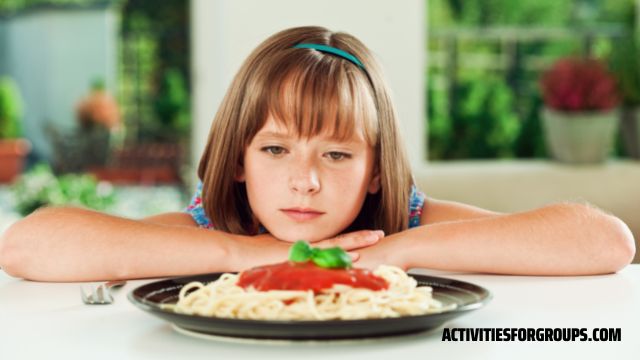
Participating in group activities for eating disorders can have long-term benefits. With the help of a qualified facilitator, these groups offer support and resources to individuals suffering from anorexia nervosa or bulimia nervosa.
They provide an opportunity for discussion and accountability that encourages healthy behaviors among members. It also helps participants to understand their behavior better by hearing about others’ experiences. Additionally, incorporating family and friends into the process can be beneficial in helping those with eating disorders find healthier coping mechanisms.
Group activities not only benefit those who are directly suffering from eating disorders, but also those around them such as family members and friends. Since many people dealing with eating disorders isolate themselves, it is important that they engage with supportive figures in their lives by participating in joint activities.
This way, loved ones can learn more about how to interact with someone going through this type of disorder while providing emotional support during challenging times. Furthermore, it gives them an understanding of what specific techniques should be employed when communicating with somebody struggling with body image issues or disordered eating habits.
By engaging in group activities related to eating disorders, individuals may begin to recognize any negative thoughts or emotions that arise due to self-image problems or unhealthy behaviors associated with food intake.
Moreover, being part of a safe environment where everyone shares similar struggles allows individuals to build meaningful connections which could potentially lead to life-long friendships or relationships built on trust and respect.
Although recovery from an eating disorder is never easy nor quick, taking part in group activities offers opportunities for growth and development over time which may ultimately result in improved mental health outcomes overall.
Conclusion
It is important to remember that if you or someone you know has an eating disorder, it can be difficult and overwhelming at times. However, with the right support system in place and through participation in various group activities for eating disorders, recovery is possible.
Group activities provide a safe space for individuals to share their stories without fear of judgment or criticism from others.
A qualified facilitator will help create a supportive environment where members are encouraged to open up about their experiences and find comfort in shared understanding. Involving family and friends in these activities can also have long-term benefits as they learn more about their loved one’s journey toward recovery and become better equipped to offer emotional support when needed.
Ultimately, by engaging in such activities on a regular basis, those affected by eating disorders can gain insight into themselves, develop healthier coping strategies, and make positive changes in their lives.

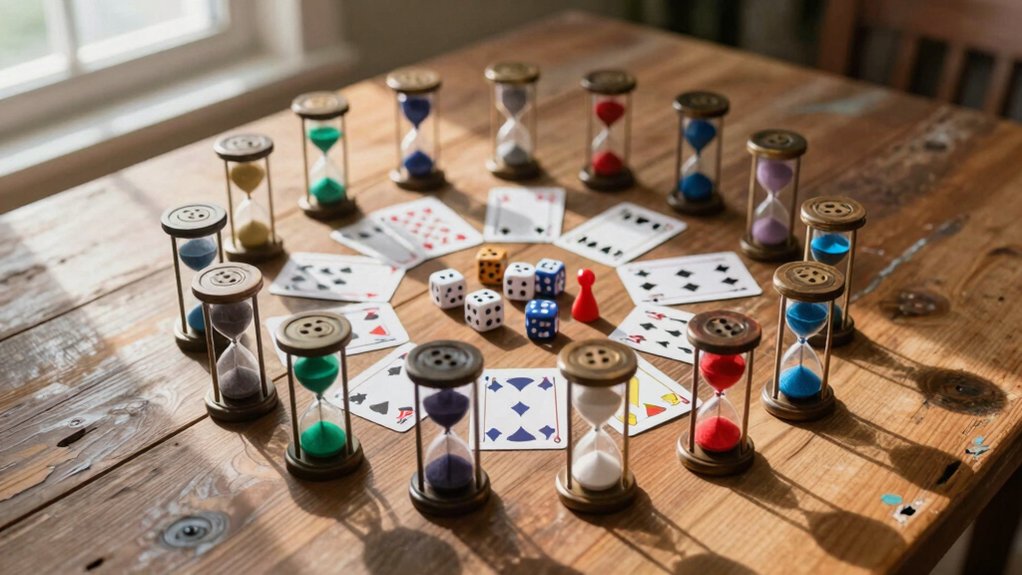
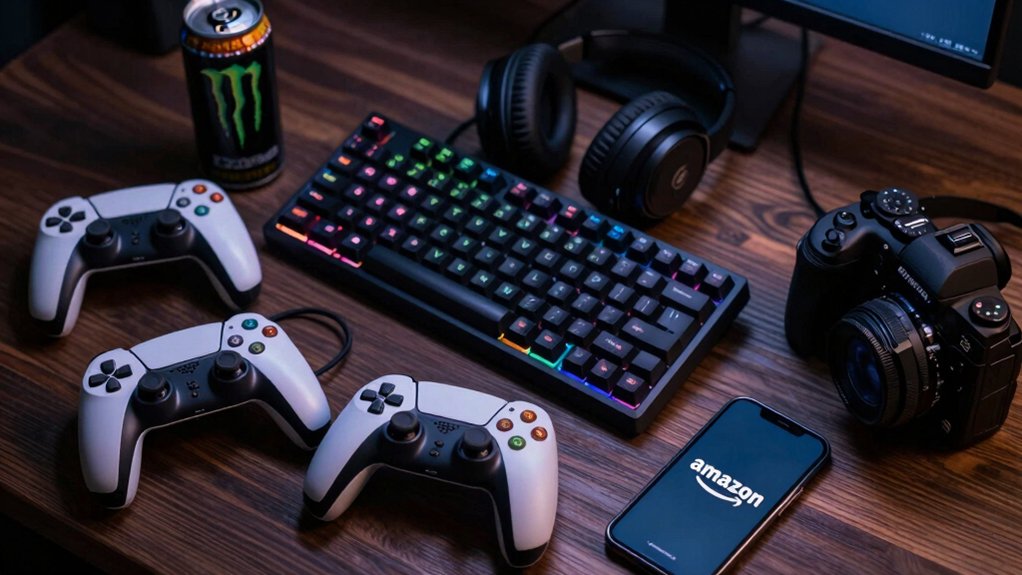
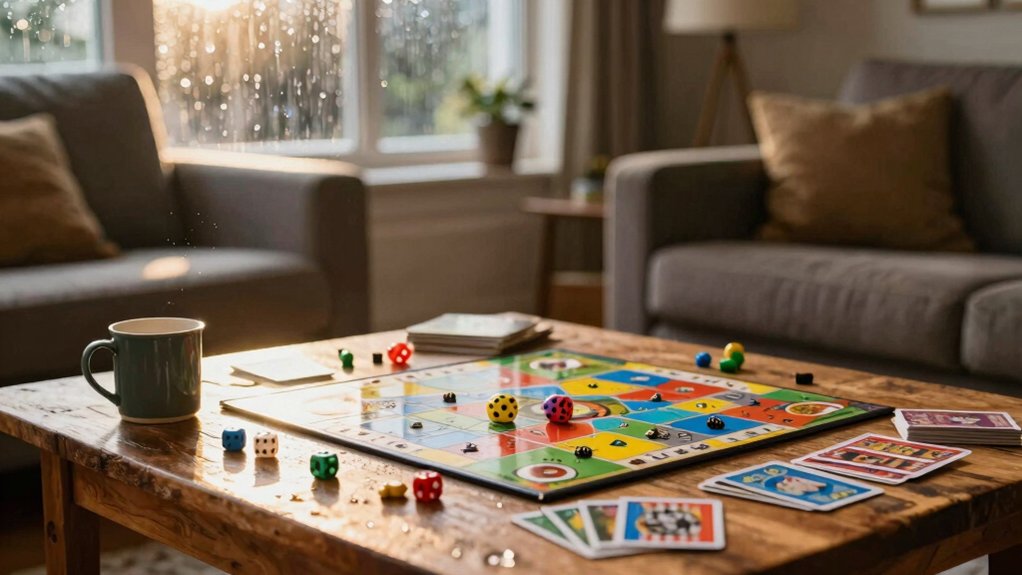
Leave a Reply